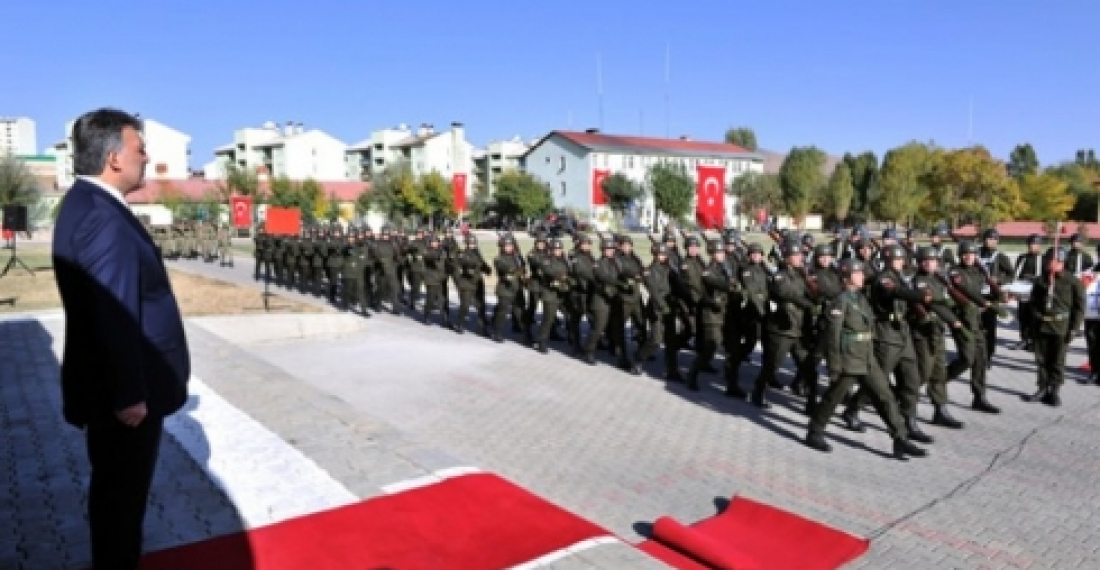The President of Turkey Abdulla Gul spent the weekend touring military establishments in the South and South East border regions of the country, in a move described by officials as being aimed to boost the morale of soldiers based at army posts on the border at a time when Turkish forces are under increased pressure from Kurdish insurgents led by the outlawed Kurdistan Workers Party (PKK). Gul attended a number of military ceremonies, inspected military facilities and spent time talking with soldiers on the front line. The visit had not been previously announced.
Chief of General Staff Necdet Özel, Land Forces Commander Gen. Hayri Kıvrıkoğlu, Gendarmerie Commander Gen. Bekir Kalyoncu and 2nd Army Corps Commander Gen. Servet Yörük accompanied the president during his visit to the border provinces.
Gül's two-day trip on Friday and Saturday included stops to visit army units in Van, Hakkari, Şırnak and Siirt provinces.
source: commonspace.eu newsroom
photo: President Gul in Yüksekova, where he inspected the Third Tactical Divisional Unit of the Turkish Army. (picture courtesy of the Presidency of the Republic of Turkey)







